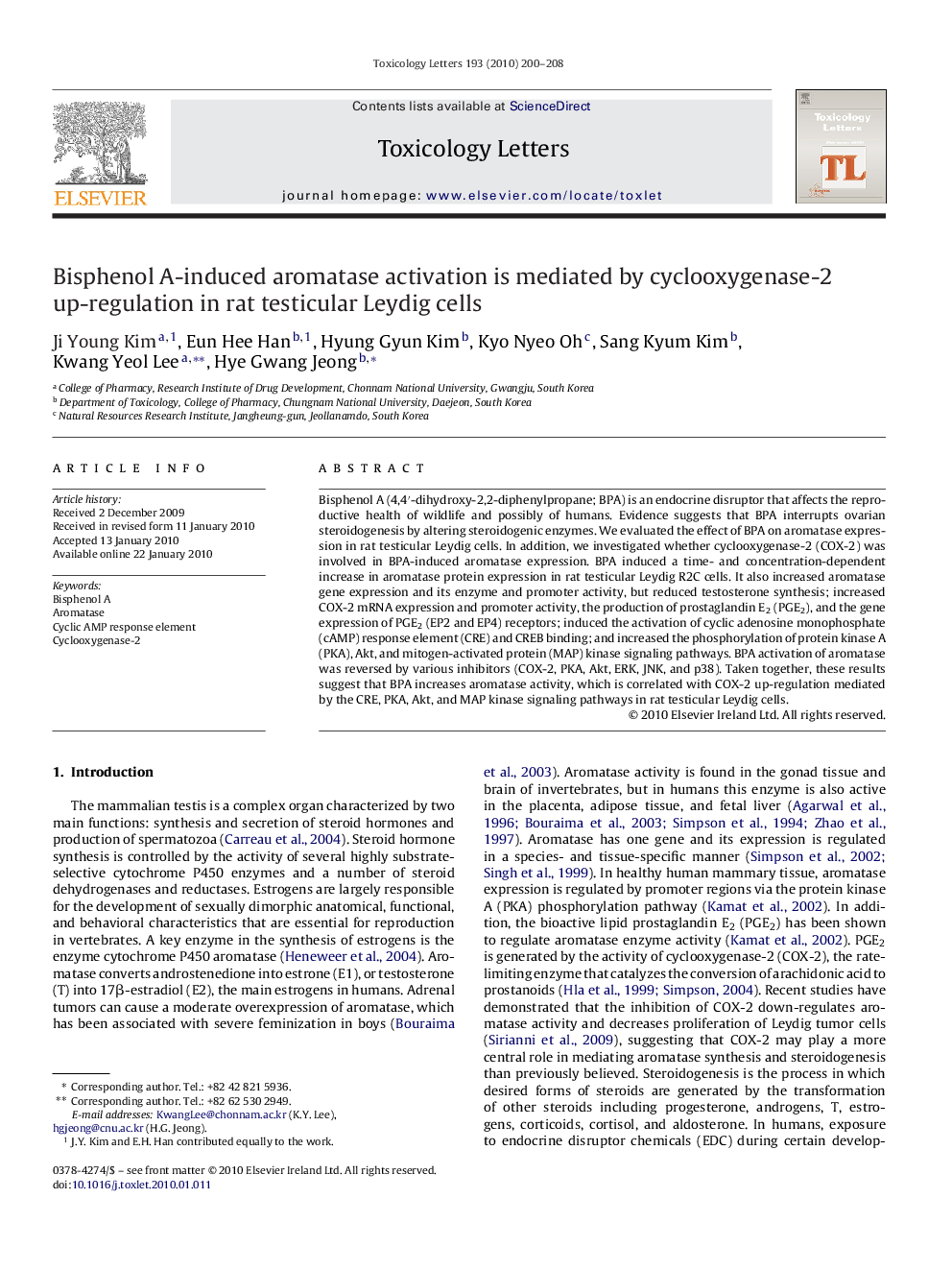| Article ID | Journal | Published Year | Pages | File Type |
|---|---|---|---|---|
| 2600506 | Toxicology Letters | 2010 | 9 Pages |
Bisphenol A (4,4′-dihydroxy-2,2-diphenylpropane; BPA) is an endocrine disruptor that affects the reproductive health of wildlife and possibly of humans. Evidence suggests that BPA interrupts ovarian steroidogenesis by altering steroidogenic enzymes. We evaluated the effect of BPA on aromatase expression in rat testicular Leydig cells. In addition, we investigated whether cyclooxygenase-2 (COX-2) was involved in BPA-induced aromatase expression. BPA induced a time- and concentration-dependent increase in aromatase protein expression in rat testicular Leydig R2C cells. It also increased aromatase gene expression and its enzyme and promoter activity, but reduced testosterone synthesis; increased COX-2 mRNA expression and promoter activity, the production of prostaglandin E2 (PGE2), and the gene expression of PGE2 (EP2 and EP4) receptors; induced the activation of cyclic adenosine monophosphate (cAMP) response element (CRE) and CREB binding; and increased the phosphorylation of protein kinase A (PKA), Akt, and mitogen-activated protein (MAP) kinase signaling pathways. BPA activation of aromatase was reversed by various inhibitors (COX-2, PKA, Akt, ERK, JNK, and p38). Taken together, these results suggest that BPA increases aromatase activity, which is correlated with COX-2 up-regulation mediated by the CRE, PKA, Akt, and MAP kinase signaling pathways in rat testicular Leydig cells.
